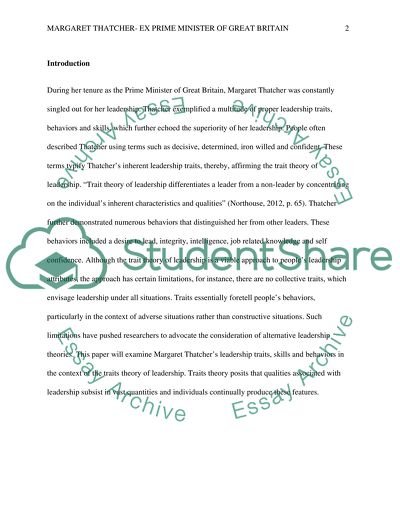Cite this document
(“Famous Leader - Margaret Thatcher EX-Prime Minister of Great Britain Essay”, n.d.)
Famous Leader - Margaret Thatcher EX-Prime Minister of Great Britain Essay. Retrieved from https://studentshare.org/history/1457626-critical-essay-on-famous-leader-margaret-thatcher
Famous Leader - Margaret Thatcher EX-Prime Minister of Great Britain Essay. Retrieved from https://studentshare.org/history/1457626-critical-essay-on-famous-leader-margaret-thatcher
(Famous Leader - Margaret Thatcher EX-Prime Minister of Great Britain Essay)
Famous Leader - Margaret Thatcher EX-Prime Minister of Great Britain Essay. https://studentshare.org/history/1457626-critical-essay-on-famous-leader-margaret-thatcher.
Famous Leader - Margaret Thatcher EX-Prime Minister of Great Britain Essay. https://studentshare.org/history/1457626-critical-essay-on-famous-leader-margaret-thatcher.
“Famous Leader - Margaret Thatcher EX-Prime Minister of Great Britain Essay”, n.d. https://studentshare.org/history/1457626-critical-essay-on-famous-leader-margaret-thatcher.


